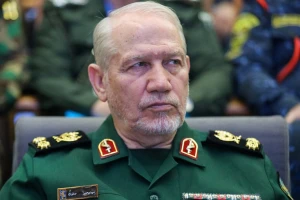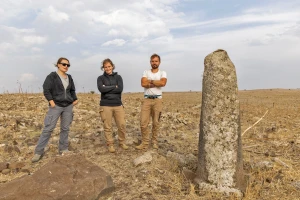Iran's FM Araghchi claims Israel asked for ceasefire, warns 'Tehran prepared for all circumstances’
Iranian Parliament speaker says 'weaknesses have been identified and addressed' in preparation for renewed conflict

Iranian Foreign Minister Abbas Araghchi warned in an interview with Asharq al-Awsat that Tehran has not ruled out renewed conflict with Israel. Speaking during his visit to Saudi Arabia for a special session of the Organization of Islamic Cooperation (OIC) on Gaza, Araghchi also addressed prospects for renewed nuclear talks with the United States, the disarmament of Hezbollah in Lebanon, and the situation in Syria, where sectarian violence has plagued the country over the past few months.
Araghchi also briefly addressed the regime's conflict with Israel, telling the Saudi news agency, “There is a possibility for everything, and Tehran is ready for all circumstances.”
Commenting on the Lebanese government’s recent announcement of a plan to disarm Hezbollah, the Iranian-backed Shia terror group long funded and armed by Tehran – which has received millions of dollars in funding and weapons since its founding – Araghchi said, “The plan to disarm it [Hezbollah] is 100 percent Israeli.”
He said the issue of Hezbollah’s weapons is for the group to decide with the Lebanese government, insisting that Iran does not interfere in Lebanon’s internal affairs.
Araghchi repeated his call for Islamic nations to cooperate against Israel, saying that countries that have agreements in place with Israel should cancel them.
"During my speech [at the OIC meeting], I stressed the need for Islamic countries to take practical steps in this field, and for countries that establish relations with the Zionist entity to take the initiative to sever those relations and stop trade exchange, as this is a practical step that can be taken,” Araghchi stated.
Regarding Iran's12-day conflict with Israel in June, Araghchi claimed Israel did not achieve any of its goals during the war.
When asked whether there is a chance for a new confrontation, Araghchi responded, “There is a possibility of everything, and we are ready for any circumstances.”
“The Zionist entity and the United States during the 12-day war did not achieve any of their goals, while the Islamic Republic heroically resisted and at the same time responded to the attack,” he added. “We continued our missile strikes on Israel until the last minute, when it thought it could counter it within 48 hours.”
Araghchi’s remarks appear to represent a shift in public discourse by Iranian leaders about the conflict. For several days after the ceasefire was announced, Iranian leaders were very circumspect in their comments regarding the war and its effects. However, over time, their rhetoric has grown bolder, shifting from messages of resilience to speaking of a future conflict as a distinct possibility. Government officials, including Araghchi, have even denied that there is a ceasefire with Israel.
Despite this renewed boldness, Iranian Parliament Speaker Mohammad Bagher Ghalibaf on Sunday appeared to acknowledge “weaknesses” in the Iranian military’s response to Israel.
“As someone aware of the efforts of the Armed Forces, I inform the Iranian people that fortifying the country’s defense is being pursued swiftly and seriously. With the valuable experience gained from the 12-day war, many weaknesses have been identified and addressed,” Ghalibaf said.
"By reinforcing existing strengths, our military forces are prepared to respond more powerfully than before to any possible attack on our beloved country, so that if the enemy does not miscalculate again, they will have no intention of attacking Iran.”
The Iranian speaker went on to claim that Iran’s ballistic missile response to Israel would be even more severe if conflict resumes.
"Our Armed Forces have made suitable plans to prevent any miscalculation by the enemy,” Ghalibaf stated. “One such measure was the “Sustainable Authority” missile drill conducted by the Navy of the Islamic Republic of Iran, which sent a clear message to the enemy that in any future war, restraint will end, and new areas and locations will be designated for retaliation. Should the enemy make a move, the conflict could expand to new regions and economic and political arenas.”
Meanwhile, reports in Israeli media claim that Israel has already asked the U.S. government to approve pre-emptive strikes on Iran if certain red lines are crossed.

The All Israel News Staff is a team of journalists in Israel.
You might also like to read this:











